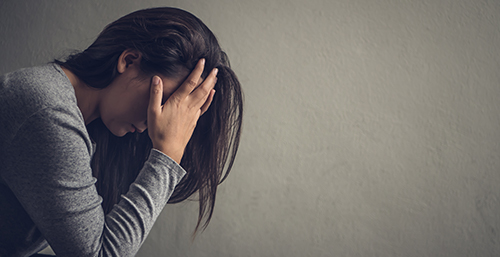
Why Do People Attempt Suicide?
According to the U.S. Department of Health and Human Services, at least 90 percent of all people who die by suicide suffer from one or more mental disorders such as depression, bipolar disorder, schizophrenia, or alcoholism and drugs. Depression, plays a large role in suicide.
"Many people who commit suicide have suffered in silence,"Â said Dr. Javaid Arrine psychiatrist at McLaren Lapeer Region . "Suicide is a desperate attempt to escape the unbearable pain and feelings of self-loathing, hopelessness, and isolation."Â
What are Some Warning Signs?
Every suicide, like every person, is different. Some suicides or suicide attempts, don't come completely out of the blue. Some people consciously or unconsciously give clues. It is best to recognize these warning signs and know how to respond if you spot them.
Talking about suicide: Statements like "I'd be better off dead" or "If I see you again"¦,"Â
Seeking the means: Trying to get access to guns, pills, or other objects that could be used in a suicide attempt.
No hope for the future: Feelings of helplessness, hopelessness, and being trapped, or believing that things will never get better.
Self-loathing: Feelings of worthlessness, guilt, shame, and self-hatred.
Getting affairs in order: Giving away prized possessions or making arrangements for family members.
Saying goodbye: Unusual or unexpected visits or calls to family and friends; saying goodbye to people as if they won't be seen again.
A more subtle but equally dangerous warning sign of suicide is hopelessness. Studies have found that hopelessness is a strong predictor of suicide.
What should I Do if I Think Someone is Suicidal?
"If a friend or family member conducts themselves in a manner that makes you feel he or she might attempt suicide, don't attempt to handle the situation alone, get professional help as soon as possible,"Â said Dr. Arrine. "The person may need to be hospitalized until the suicidal crisis has passes."Â
If a suicide attempt seems imminent, call 1-800-273-TALK (8255), dial 911, or take the person to an emergency room. Remove guns, drugs, knives, and other potentially lethal objects from the vicinity but DO NOT, under any circumstances, leave a suicidal person alone.
"You're not responsible for preventing someone from committing suicide,"Â said Dr. Arrine "but your intervention may help the person see that other options are available and seek treatment."Â
If you or someone you know is considering suicide, call the national suicide hotline at 1-800-273-TALK (8255).